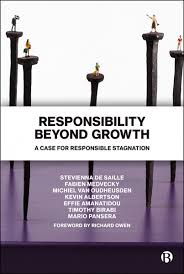Toyota, Lexus and Kia use self-charging as a term to describe their hybrids.
Mild hybrid doesn’t sound as exciting or technologically advanced as a self-charging car, which is probably why they market them as that!
How Do Self-Charging Cars Work?
A self-charging hybrid has a small battery and an electric motor. When the vehicle brakes, the initial phase of braking is used to charge the battery. Brakes (disks and pads) then kick-in after.
This is a basic form of regenerative braking (or regen) something plug-in hybrids (PHEVs) and electric vehicles (BEVs) do too, but to a greater degree and effectiveness.
The small amount of energy recovered from braking is then able to be used to drive a limited distance. The battery can only run for around a mile before it needs recharging.
What Powers a Self-Charging Hybrid?
Unfortunately, a self-powered car breaks the laws of physics, as the energy must come from somewhere. In one of Kia/Lexus/Toyota’s hybrids, the power comes from burning fossil fuels – the petrol in the internal combustion engine.
This means self-charging cars are 100% powered by petrol. All the propulsion achieved is down to petrol – since the cars don’t plug-in.
If we refer to hybrids as self-charging, we should really refer to all petrol and diesel cars as self-charging, since these cars don’t need plugging in to charge their 12-volt battery which powers the wipers, headlights and other electrical ancillery services.
How Far Can A Self-Charging Car Travel?
Toyota et al claim that their mild hybrids can be driven over 50% of the time on “pure electricity”. That makes them seem awfully green, given we tend to associate electricity with being green and petrol with being polluting. This claim is misleading for two reasons:
- All the electricity used to driver is generated by burning petrol, so it certainly isn’t the clean energy you can get from the grid or solar on the roof of your house.
- It’s crucial to remember that Totota reference time not distance – if you drive in stop-start traffic, the engine might be off for a large proportion of the time as you’re stationary. Some of the slower speed driving may be achievable using the battery, but because the battery is very small, it will drain extremly quickly and require recharging – so the petrol engine turns on. In terms of distance driven, around 1-3% of the distance driven uses the battery. This translats to around 2 miles in 100 miles of driving.
Do Self-Charging Cars Exist?
Will we ever see a car that can power itself? In the Toyota sense of self-charging, no. It’s not possible to drive a hybrid without putting petrol in it.
However, there are projects like Lightyear One, working to create cars that you may never need to plug-in! These are pure electric cars (not hybrids, so no fossil fuels) and can be charged by plugging-in, or from the solar panels built into the roof, bonnet and boot! ☀️⚡🔋🚗
Lightyear are aiming to be able to charge an impressive 12 kilometres (7 miles) from 1 hour of sunshine charging – using the solar panels on the roof! For those who drive short distances, or travel infrequently, that could mean you’d never need to plug-in!
More info on the Lightyear One in this Fully Charged video.
Should Self-Charging Be Banned?
In Norway (home of the EV, where over half of cars sold in 2020 were fully electric) they’ve banned adverts that reference “self-charging” believing the term is misleading.
I believe marketing a petrol car (100% powered by fossil fuels) as self-charging should be banned. It makes polluting cars that burn fossil fuels seem cleaner and if you don’t do your research, you might think you’re doing your bit to look after the environment when actually, nothing could be further from the truth.



